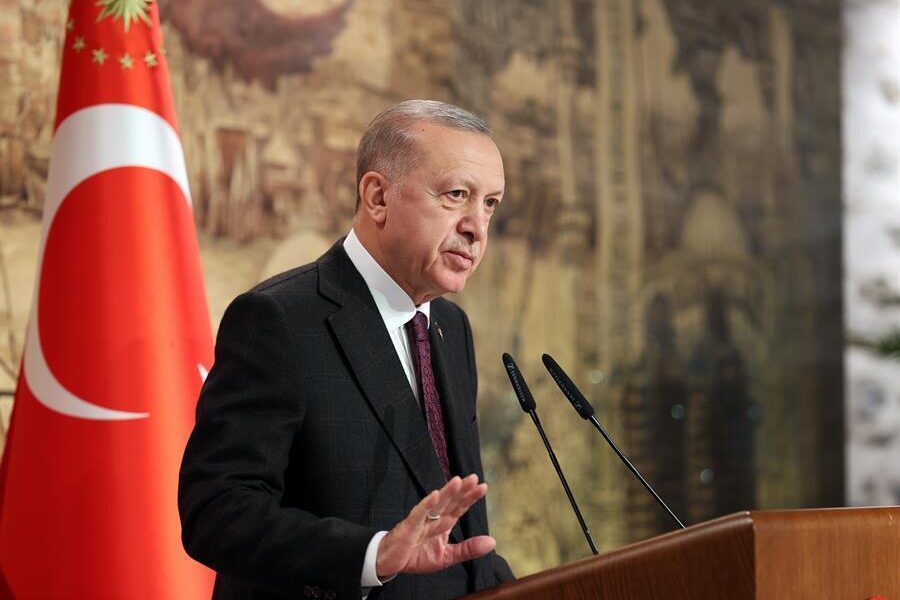The Foreign Ministers of the European Union submitted a report that evaluated the progress of Turkey's integration into the EU following the General Affairs Council meeting on December 14, 2021.
In the document, it was underlined that Ankara continues to step further and further from the principles of democracy, a commitment that is the main and necessary condition for obtaining EU membership.
So, authors of the document noted that the situation with rule of law, independent justice and observance of basic human rights and freedoms in Turkey continues to worsen.
The special powers of Turkish authorities gained by them after the 2016 coup d'etat attempt still remain in force, therefore pressure on civil society and representatives of opposition parties does not stop.
Actually, recent developments show that Ankara is more and more drifting towards authoritarianism and Islamisation.
The Turkish political order in recent years had undergone substantial changes.
If the initial period of Erdoğan’s power (2002-2011s) was characterised by stability in policy, high level of economic growth and liberalisation reforms.
However, since the beginning of the 2010s, there has been a formation of an authoritarian regime in the form of personalistic government of the Turkish leader.
READ MORE: Turkey accelerates the process of absorbing Azerbaijan.
The new tendencies in the Justice and Development Party (AKP) were one of the reasons of such global changes in the Turkish political system.
At the beginning of the 2000s, Erdoğan’s party has neglected its own target audience, character of rhetoric and management techniques.
As a result, AKP started focusing, first of all, on nationalists, having radicalised the notion of "nation", and political Islam, which became the fundamental principle of the regime.
Meanwhile, socialist studies show that not everybody in Turkey is happy with such situation.
According to a summer 2021 survey conducted by Mustafa Aydin, a Turkish academic, professor of international relations, writer, columnist, TV commentator and public intellectual, significant disappointment in conservative and Islamic values became a characteristic trend for Turkey’s population in recent years.
In particular, as the unjust victimisation of the regime and ideological pressure increased, the number of people identifying themselves as supporters of political Islam decreased from 47.4% in 2017 to an unprecedented 27.0% in 2021.
Against this backdrop, this is very logical when it comes to severe criticism of the European Union concerning Turkey, which continues to drift further from the European integration processes.
Earlier, European Parliament members studied the report prepared by Spanish politician Nacho Sanchez Amor. The document stated that Erdoğan’s authoritarian regime unleashed a fierce crackdown, started repressions, unprecedented in atrocities and scale against citizens of the country, opposition and mass media.
In that regard, parliamentarians called into question the appropriateness of further negotiations on accession of Turkey in the EU.
While there is an intense struggle between democracy and authoritarianism in the developing world, Erdoğan stakes Turkey's future on deep-rooting political Islam.
Such a choice, obviously, puts all the range of his ideological outlooks at serious risk of a failure, when increasing impatience with the policy of the ruling party is not only among Turkish citizens, but also the West.
Kemran Mamedov is a Moscow-based Azerbaijiani journalist born in Georgia with a focus on South Caucasus issues.


